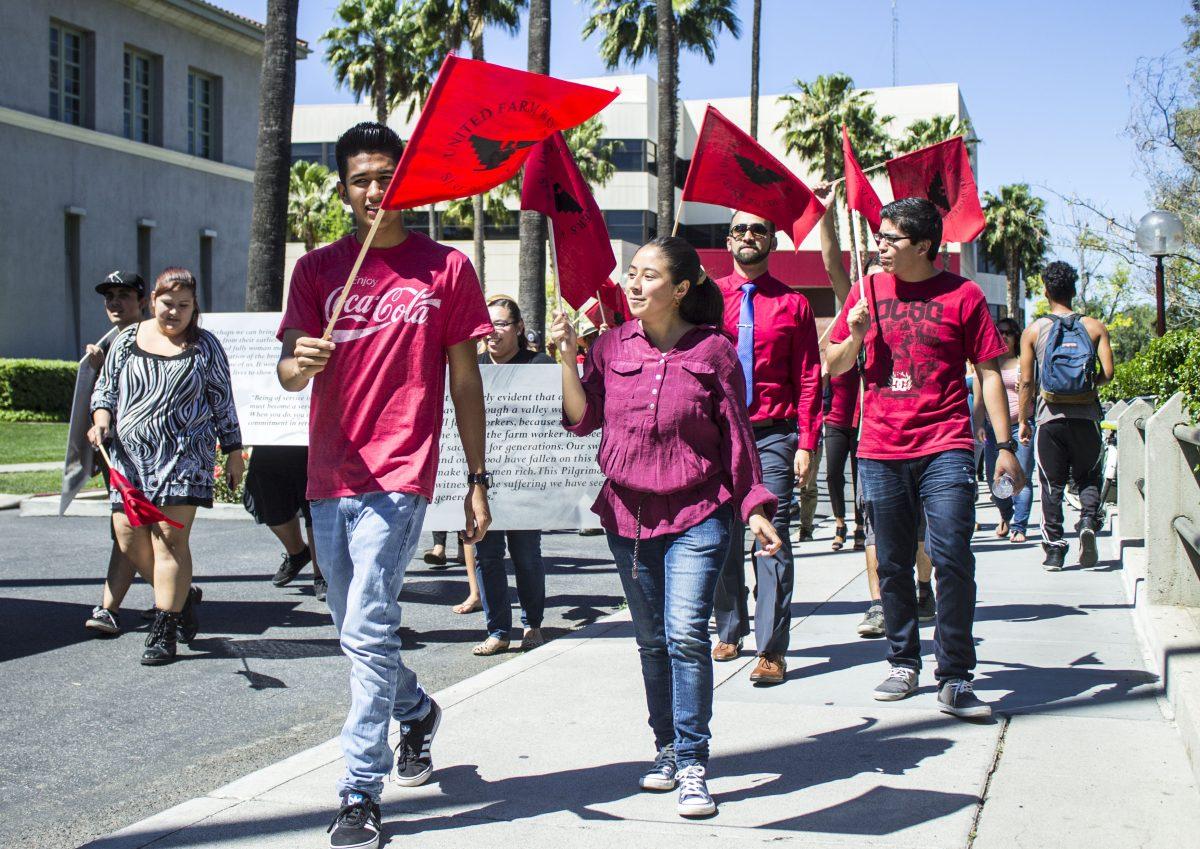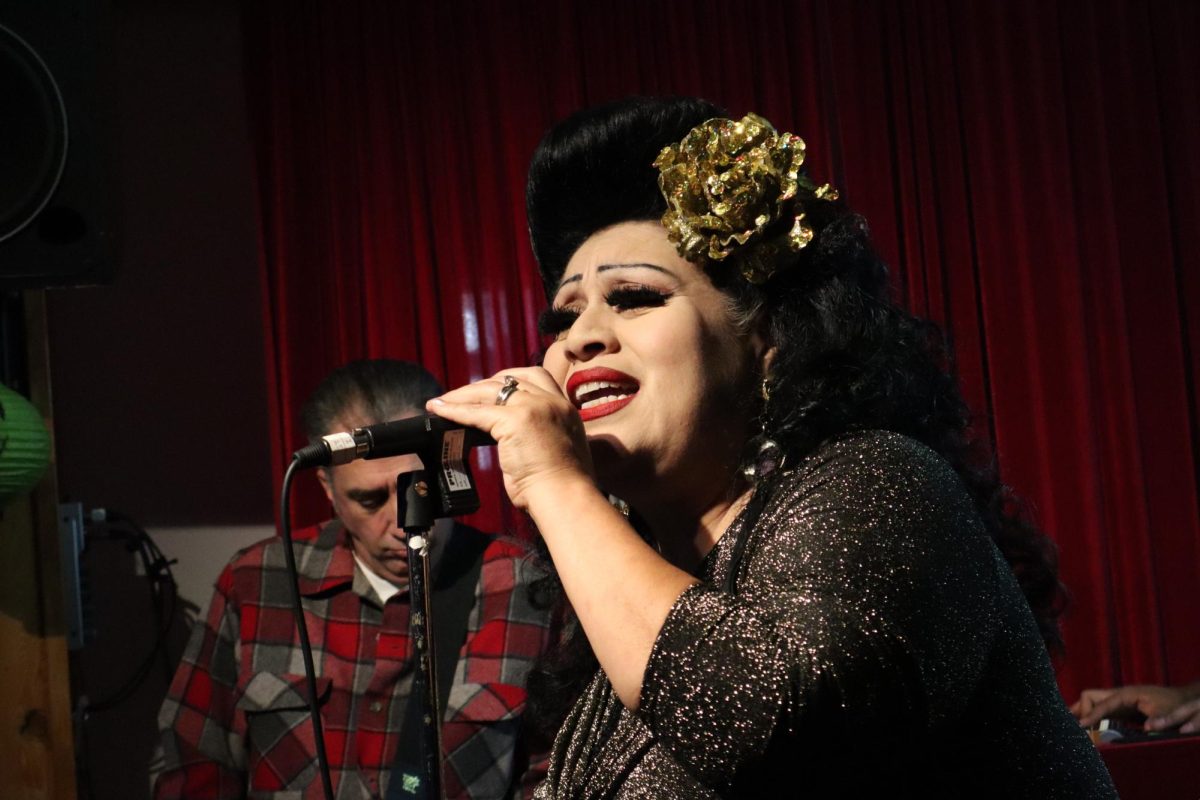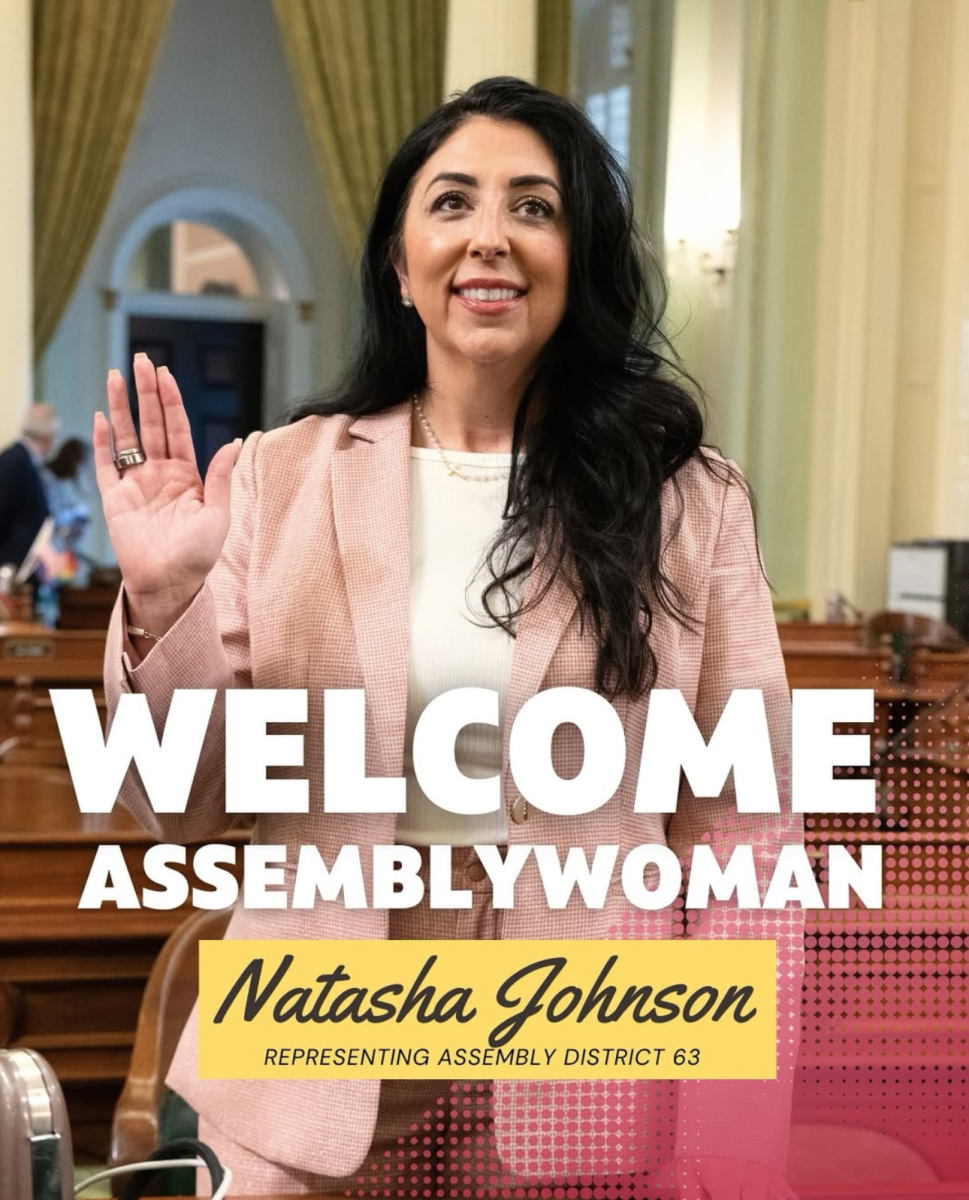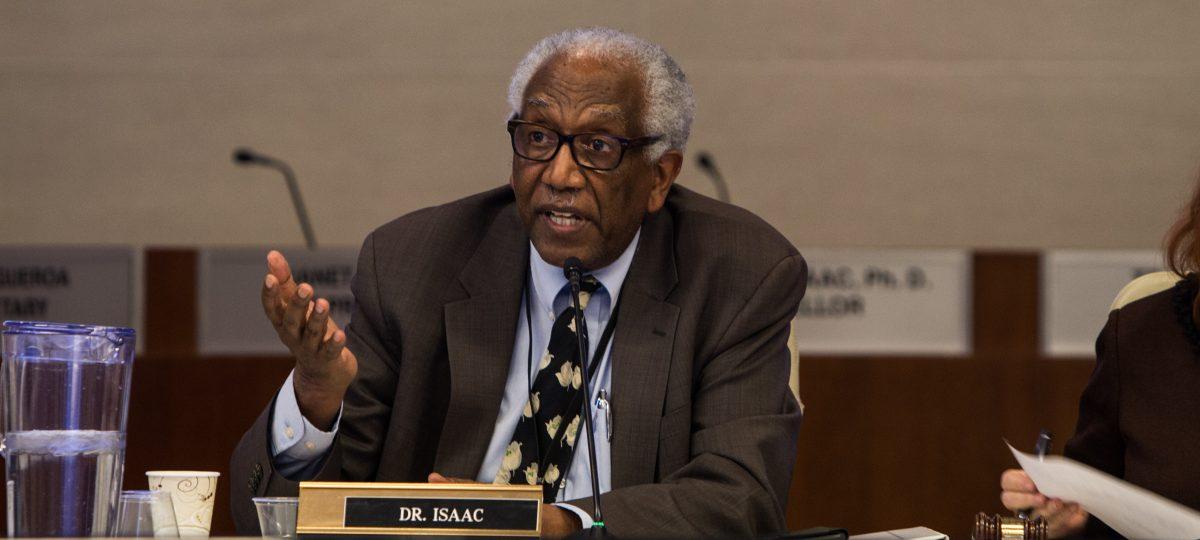Posted: April 8, 2015 | Written by Brooke Cary
Students lined the street outside Terracina Dr. and Mine Okubo St. drawn by hispanic music, banners, club tents and free tacos for students and staff on March 30.
The event was a Cesar Chavez celebration, part of a 3-day event that ASRCC and Diversity group Puente put together, ASRCC director Yvette Salazar explained. ASRCC had been planning this closing ceremony for about a month and a half.
One of the main goals of the event was to educate students on the work and life of Cesar Chavez, Salazar says. “We’ve come a long way, but we still have a long way to go because if people still don’t know who Cesar Chavez is, we have to keep fighting…even if it’s just one person that we educate, it’s one more person than yesterday,” Salazar continued.
Turnout for the last two events was described as “very successful”, especially because celebration continued for 3 days, “that way they know it’s not just for the holiday, you know. It really matters.” Photos of the danza performance and the march with the Mariachi were posted on student’s instagram and snapchat accounts, said Salazar.
Though many students showed up to the feast for tacos, some students were still uncertain of the cause for celebration. “I think there could be a more clear educational focus on the advertisement”, commented one student who wished to remain anonymous.
A very different perspective was offered by student William Silva, a student in his 2nd year at RCC. “Students here are always on the go, always rushing somewhere here and there. For what they did have up in terms of his [Chavez’] timeline, I think that was a nice way of introducing students to who he was.”
Although, educationally, Silva would have preferred more emphasis on the struggle of farmers in the 1960s, he gave positive feedback for the events.
For Silva, Cesar Chavez celebration holds special significance. “My grandparents met because both their families worked on the same farms together…A lot of students don’t really look back on their history like that,” he explained, “so immediately I just connect with this and it’s really nice.”
Although Silva and ASRCC director Salazar intentionally celebrate Cesar Chavez holiday, many students have only a vague awareness of the milestones reached by Chavez’ life work.
“The older generation definitely know, and it means a lot to them. But to the younger generation, I don’t think it means as much because they haven’t been through the same struggle.” said Silva, “I think more testimonial would be helpful–some of the groundscapers here have had that history, maybe if we found some students and their grandparents we could connect that personal testimony, showing from where they’ve come to how far we are now.”
Little known to William, an RCC groundsperson named Miguel Arias has been working to improve farm labor conditions since the early 2000s.
When Arias first started working in the fields in 1976, he would regularly spray one of the most dangerous pesticides, malathion. “We didn’t have any information about it. We just get there and spray,” Arias explained.
Every time before Arias and the other sprayers had to spray malathion, workers were required to go to the clinic for a blood check before and after the spray because of the toxicity of the pesticide.
Although the checkups were required, the equipment provided for workers was usually very rudimentary—a paper mask and long-sleeve shirt served as their “protection” from the toxic fumes.
“It’s like nothing, you know?” Sometimes I look back and think, ‘how?’ —so many people working like that?’ Arias sprayed these dangerous pesticides for 10 years straight, and not just once—many times.
Thankfully, Arias has not suffered medical injury from the pesticides, but he has known others who have become sick, and had to take a few weeks off to clean out their bloodstream before coming back to work in the same conditions.
Since Cesar Chavez revolutionized the crisis of farm labor conditions, “Now, It’s a lot better. They changed so much because of regulations. They make sure we have blood test, masks, and equipment,” Arias says.
Although Chavez himself passed away in 1983, his impact lives on through the lives of men and women (like Miguel Arias) that he inspired.
Last winter, Arias got help from staff members at RCC to collect a donation of over 40 jackets to take to farm workers in the Modesto area. When he arrived, he told the workers—“In Riverside, someone cares for you. You guys—not alone. RCC, where I work, my coworkers, the students—they remember you, you guys are not alone. We support you.”
This year, Miguel will be working on collecting and bringing food for the workers in Oxnard, CA. If you would like to join in this campaign, be on the lookout for flyers around the RCC campus in May, with more details to follow.







